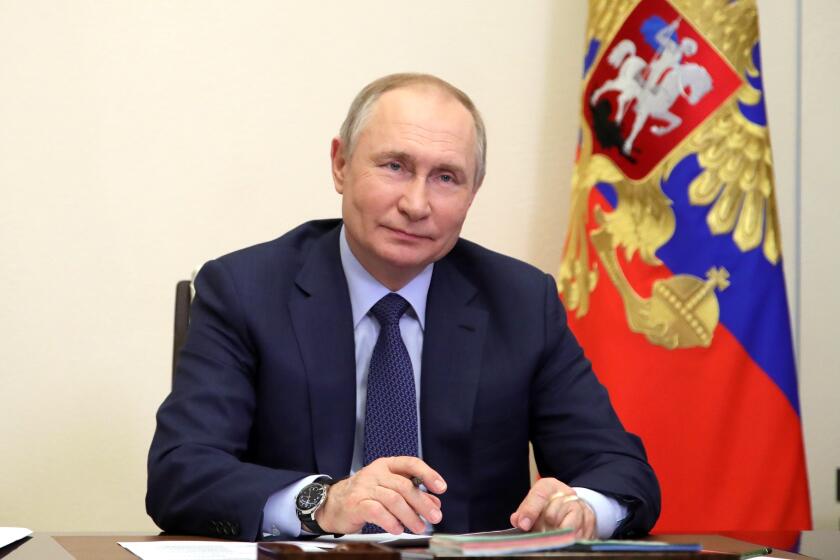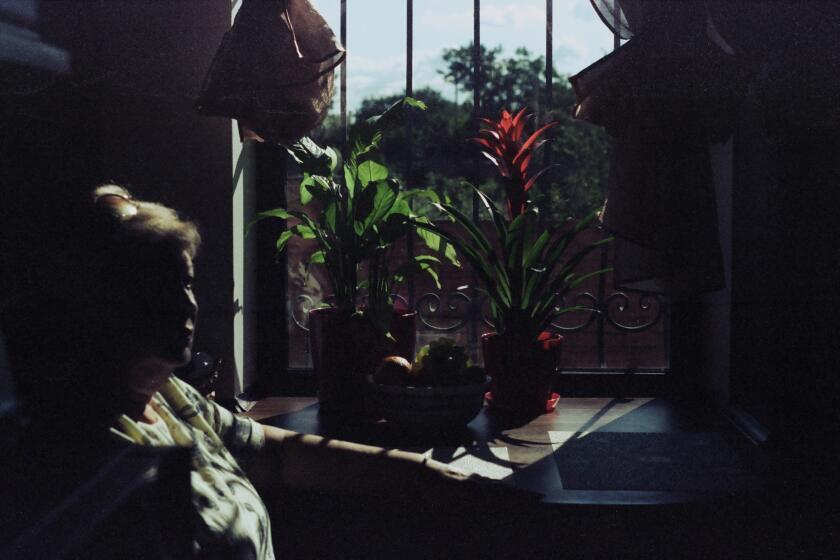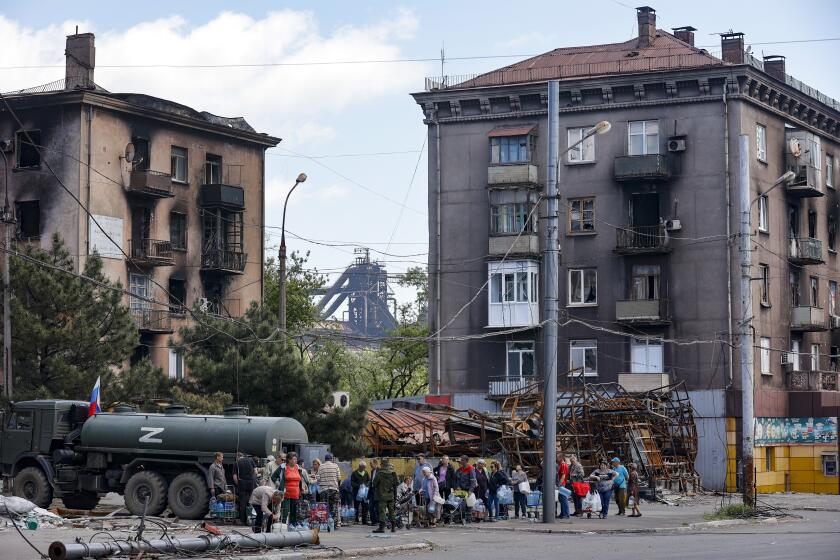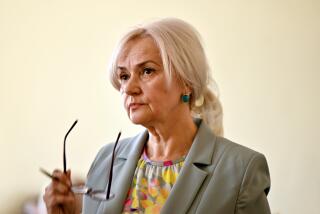Russia blames Ukraine for bombing near Moscow that killed nationalist ideologue’s daughter
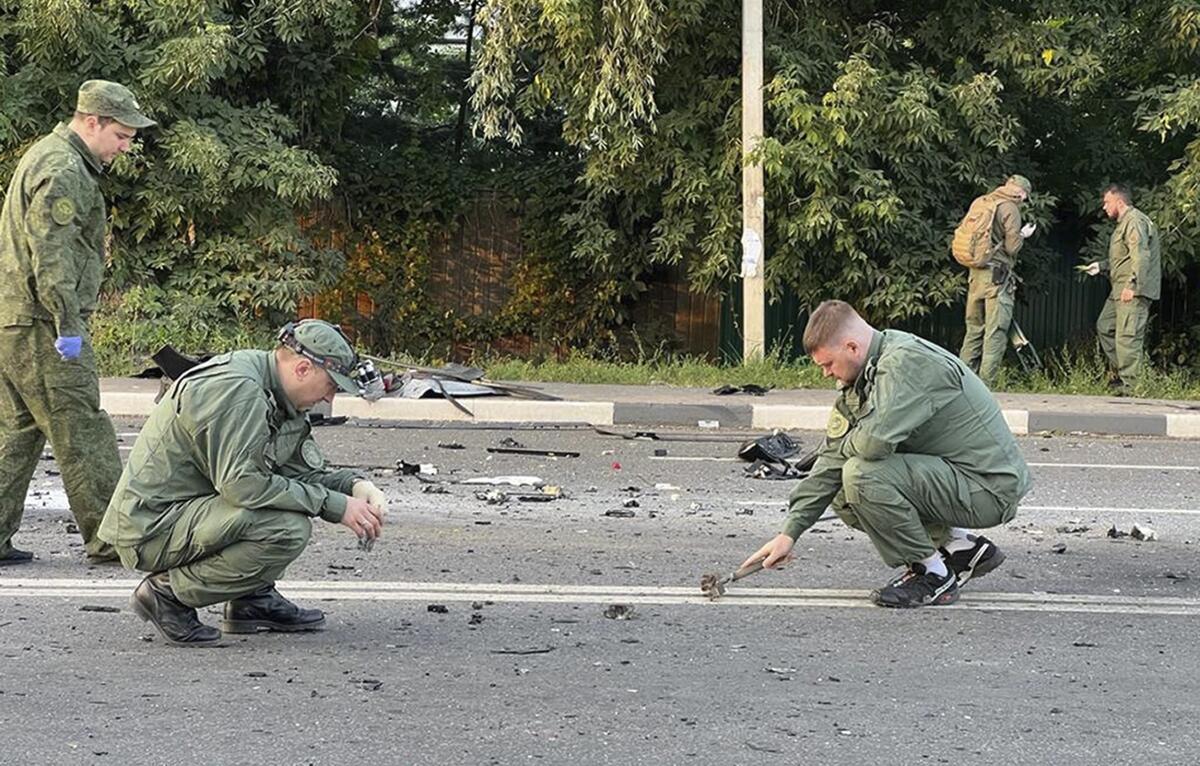
- Share via
MOSCOW — Moving quickly to assign blame, Russia on Monday declared Ukrainian intelligence responsible for the brazen car bombing that killed the daughter of a leading right-wing Russian political thinker over the weekend. Ukraine denied involvement.
Daria Dugina, a 29-year-old commentator with a nationalist Russian TV channel, died when a remotely controlled explosive device planted in her SUV blew up on Saturday night as she was driving on the outskirts of Moscow, ripping the vehicle apart and killing her on the spot, authorities said.
Her father, Alexander Dugin, a philosopher, writer and political theorist who ardently supports Russian President Vladimir Putin’s decision to invade Ukraine, was widely believed to be the intended target. Russian media quoted witnesses as saying that the SUV belonged to Dugin and that he had decided at the last minute to travel in another vehicle.
Russia’s Federal Security Service, or FSB, the main successor to the KGB, said Dugina’s killing was “prepared and perpetrated by the Ukrainian special services.”
The FSB said a Ukrainian citizen, Natalya Vovk, carried out the killing and then fled to Estonia.
In Estonia, the prosecutor general’s office said in a statement carried by the Baltic News Services that it “has not received any requests or inquiries from the Russian authorities on this topic.”
Putin’s war relies on an ultranationalist ideology pushed by far-right Russian thinkers who see Ukrainian nationhood as a fiction.
The FSB said that Vovk arrived in Russia in July with her 12-year-old daughter and rented an apartment in the building where Dugina lived to shadow her. It said that Vovk and her daughter were at a nationalist festival which Dugin and his daughter attended just before the killing.
The agency released video of the suspect from surveillance cameras at the border crossings and at the entrance to the Moscow apartment building.
The FSB said Vovk used a license plate for Ukraine’s Russia-backed separatist Donetsk region to enter Russia and a Kazakhstan plate in Moscow before switching to a Ukrainian one to cross into Estonia.
Ukraine’s presidential advisor Mykhailo Podolyak denied any Ukrainian involvement in the bombing. In a tweet, he dismissed the FSB claims as fiction, casting them as part of infighting between Russian security agencies.
In a letter extending condolences to Dugin and his wife, Putin denounced the “cruel and treacherous” killing and added that Dugina “honestly served people and the Fatherland, proving what it means to be a patriot of Russia with her deeds.” He posthumously awarded Dugina the Order of Courage, one of Russia’s highest medals.
Russian Foreign Ministry spokeswoman Maria Zakharov said Dugina’s killing reflected Kyiv’s reliance on “terrorism as an instrument of its criminal ideology.”
In a statement, Dugin described his daughter as a “rising star” who was “treacherously killed by enemies of Russia.”
“Our hearts are longing not just for revenge and retaliation, it would be too petty, not in Russia style,” Dugin wrote. “We need only victory.”
Ukrainian authorities believe cases of sexual assault by Russian occupiers are vastly underreported. Shame and many factors underlie survivors’ unwillingness to report rapes.
The car bombing, unusual for Moscow since the gang wars of the turbulent 1990s, triggered calls from Russian nationalists to respond by ramping up strikes on Ukraine.
Sergei Markov, a pro-Kremlin political analyst, argued that the perpetrators of Dugina’s killing might have hoped to encourage a split between those in the Russian elite who advocate a political compromise to end the hostilities in Ukraine and proponents of even tougher military action.
Dugin, dubbed “Putin’s brain” and “Putin’s Rasputin” by some in the West, has been a prominent proponent of the “Russian world” concept, a spiritual and political ideology that emphasizes traditional values, the restoration of Russia’s global clout and the unity of all ethnic Russians throughout the world.
The explosion took place as Dugin’s daughter was returning from the cultural festival she had attended with him.
As the war in Ukraine nears its six-month mark, Russia faces multiple problems in the territory it has taken over.
Dugin helped popularize the “Novorossiya,” or “New Russia” concept that Russia used to justify the 2014 annexation of Ukraine’s Crimean peninsula and its support of separatist rebels in eastern Ukraine. He has urged the Kremlin to step up its operations in Ukraine.
Dugin has also promoted authoritarian leadership in Russia and spoken with disdain of liberal Western values. He has been slapped with U.S. and European Union sanctions.
His daughter expressed similar views and had appeared as a commentator on nationalist TV channel Tsargrad, where Dugin had served as chief editor.
News Alerts
Get breaking news, investigations, analysis and more signature journalism from the Los Angeles Times in your inbox.
You may occasionally receive promotional content from the Los Angeles Times.
Dugina herself was sanctioned by the U.S. in March for her work as chief editor of United World International, a website that the U.S. described as a disinformation source.
In an appearance on Russian television Thursday, Dugina called America “a zombie society” in which people opposed Russia but couldn’t find it on a map.
U.S. State Department spokesman Ned Price said Monday that Washington “unequivocally” condemns the targeting of civilians.
“We condemn the targeting of civilians, whether that’s in Kyiv, whether that’s in Bucha, whether that’s in Kharkiv, whether that’s in Kramatorsk, whether that’s in Mariupol,” he said, listing Ukrainian towns and cities, “or whether that’s in Moscow. That principle applies around the world.”
More to Read
Sign up for Essential California
The most important California stories and recommendations in your inbox every morning.
You may occasionally receive promotional content from the Los Angeles Times.
